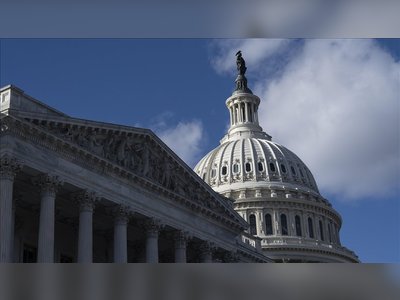
White House Accelerates Measures to Ease Cost-of-Living for Americans
President Trump pursues direct payments, antitrust probe and tariff cuts in response to voter concerns
The White House has launched a multi-pronged effort to curb household costs in the United States, signalling a strategic shift under President Donald Trump in response to economic pressures and recent electoral warning signs.
Key components of the plan include exploring direct payments of two thousand dollars or more to American households, initiating an antitrust investigation into major meat-packing firms for alleged price-collusion, and announcing tariff reductions on everyday imports such as coffee, bananas and beef.
On the direct payment front, the president declared a commitment to deliver a “tariff dividend” of at least two thousand dollars per person, funded through import duty revenue.
The White House press secretary confirmed the pledge, though officials acknowledged the mechanism and eligibility criteria remain under review.
Simultaneously, the Department of Justice has opened a probe into whether meat-packing companies coordinated to drive up beef prices — a move designed to address sharp rises in household grocery bills.
In parallel, trade policy is shifting.
The administration has informed trading partners including Argentina, Ecuador, Guatemala and El Salvador that selected duties will be cut, especially on goods the U.S. does not produce, such as coffee and tropical fruits — measures expected to feed through into lower retail prices for American shoppers.
Treasury Secretary Scott Bessent confirmed that the first wave of tariff exclusions will target imports of coffee and bananas “very quickly”, following gains by Democrats in recent state elections attributed in part to affordability concerns.
Economists note that while tariffs had contributed to rising consumer prices, the reversal reflects the administration’s recognition of the cost burden on households.
With what the White House describes as urgent “price relief” messaging, the domestic agenda is clearly being recalibrated: the emphasis now lies not only in industrial policy and trade rebalancing but also in visible actions to ease daily burdens for working-class Americans.
Analysts say the effectiveness of the measures will depend on rapid implementation across agencies and the degree to which retailers pass savings on to consumers.
Key components of the plan include exploring direct payments of two thousand dollars or more to American households, initiating an antitrust investigation into major meat-packing firms for alleged price-collusion, and announcing tariff reductions on everyday imports such as coffee, bananas and beef.
On the direct payment front, the president declared a commitment to deliver a “tariff dividend” of at least two thousand dollars per person, funded through import duty revenue.
The White House press secretary confirmed the pledge, though officials acknowledged the mechanism and eligibility criteria remain under review.
Simultaneously, the Department of Justice has opened a probe into whether meat-packing companies coordinated to drive up beef prices — a move designed to address sharp rises in household grocery bills.
In parallel, trade policy is shifting.
The administration has informed trading partners including Argentina, Ecuador, Guatemala and El Salvador that selected duties will be cut, especially on goods the U.S. does not produce, such as coffee and tropical fruits — measures expected to feed through into lower retail prices for American shoppers.
Treasury Secretary Scott Bessent confirmed that the first wave of tariff exclusions will target imports of coffee and bananas “very quickly”, following gains by Democrats in recent state elections attributed in part to affordability concerns.
Economists note that while tariffs had contributed to rising consumer prices, the reversal reflects the administration’s recognition of the cost burden on households.
With what the White House describes as urgent “price relief” messaging, the domestic agenda is clearly being recalibrated: the emphasis now lies not only in industrial policy and trade rebalancing but also in visible actions to ease daily burdens for working-class Americans.
Analysts say the effectiveness of the measures will depend on rapid implementation across agencies and the degree to which retailers pass savings on to consumers.











